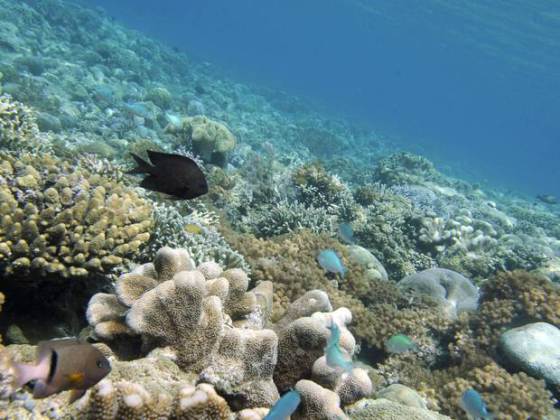
Source: PACNEWS
Makereta Komai in Palau World renowned marine scientist, Dr Sylvia Earle has urged Forum Island Countries not to drop the ball on the sustainable management and protection of oceans and marine resources.
She is delighted with the initiative of the Palaun Government to make ‘Oceans’ the theme of the 45th Pacific Islands Forum Leaders meeting in Koror, Palau this week.
Dr Earle, who is the founder of Deep Ocean Exploration and Research and honored by Time magazine as the first Hero of the Planet was the keynote speaker at the Panel of Experts Monday convened by the Government of Palau to deliberate on the theme, “The Ocean: Life & Future.”
She urged Pacific Leaders to ‘protect the oceans as if their lives depended on it.”
“Only five percent of the oceans have been explored and the rest remains unknown. This therefore requires us to consider a cautionary approach if we are to explore what is in our oceans, said Dr Earle.
Armed with knowledge and ‘the use of latest technology, Dr Earle urged Pacific decision makers to ‘explore with care’ opportunities available in their exclusive economic zones before committing to exploration work.
She qualified her cautionary approach saying ‘if there is no ocean, there is no life.’ Livelihoods of peoples in the Pacific rely heavily on the oceans and its resources.
Addressing Pacific journalists here in Koror Saturday, Pacific Islands Forum Secretariat’s director strategic planning & co-ordination, Alex Knox assured that Forum Leaders will make Oceans one of their priorities with an expected Declaration at the end of the weeklong Summit in Koror this week.
“What we are trying to do at the regional level is put in place some coherence and build a single policy around Oceans so that we see Oceans not from a fisheries, conservation or deep sea mining lenses but as a single policy.
To build coherence at the regional level, a broad coalition of all stakeholders involved in the work of oceans called the Pacific Oceans Alliance has been created to bring all the parties together to focus on oceans as a single sector, said Knox.
The Pacific Oceans Alliance to be launched at the 3rd United Nations Global Conference for Small Island Developing States in Samoa in early September is open to governments, civil societies, CROP agencies and development partners.
“It was created to provide more coherence framework on how countries engaged around oceans. It looked at the institutions and policies around oceans.
The Pacific Oceans Alliance came out of the Pacific Oceanscape regional policy pushed by Kiribati in 2010.
One of the initiatives under the Pacific Oceanscape framework was the appointment of Tuiloma Neroni Slade as the first ever Oceans commissioner for the region.
“The office of the Oceans Commissioner places strong political engagement within and outside the region on oceans issues.”
“An Oceans Leaders Declaration will be issued at the end of the Summit. It is a broad statement on Oceans where Leaders show their commitment to taking leadership on Oceans issues like they did in Majuro when Leaders made a declaration on climate change, said Knox.
One of the challenges for Oceans is that there are many difference interests in Oceans both at the national and regional level.
“Trying to bring some interests together will be quite challenging – that is why the Leaders Declaration is critical because it can start to drive a vision and change around the regional policy.
“We can build resources and institutions around the regional framework. Unless there is money and people that can push it, it won’t happen. This Declaration will have the Pacific Oceans Alliance, the Oceans Commissioner and resources to support it.
“We expect to have some form of annual report – like the annual State of the Oceans report to come out of this that will provide the basis for long term monitoring framework, said Knox.
- Elizabeth1's blog
- Log in to post comments
